West Point graduate writes emotional letter to plebe self
Second Lt. Spencer Gillis discusses his experiences at West Point and how they shaped him into a leader.
The U.S. Military Academy at West Point is an academy of higher education in which commissioned officers are trained as leaders for the United States Army.
And on this day in history, July 4, 1802, the U.S. Military Academy first opened in West Point, New York.
Typically, some 1,200 prospective cadets are admitted each year, according to Britannica. West Point itself announced at the end of June this year in a media release that over 1,230 U.S. citizens and 16 international students would be reporting to the academy on July 1 to join West Point’s Class of 2028.
The idea for an American military school came from Gen. Henry Knox in 1776.
Gen. George Washington and Alexander Hamilton quickly backed the idea, according to Britannica.
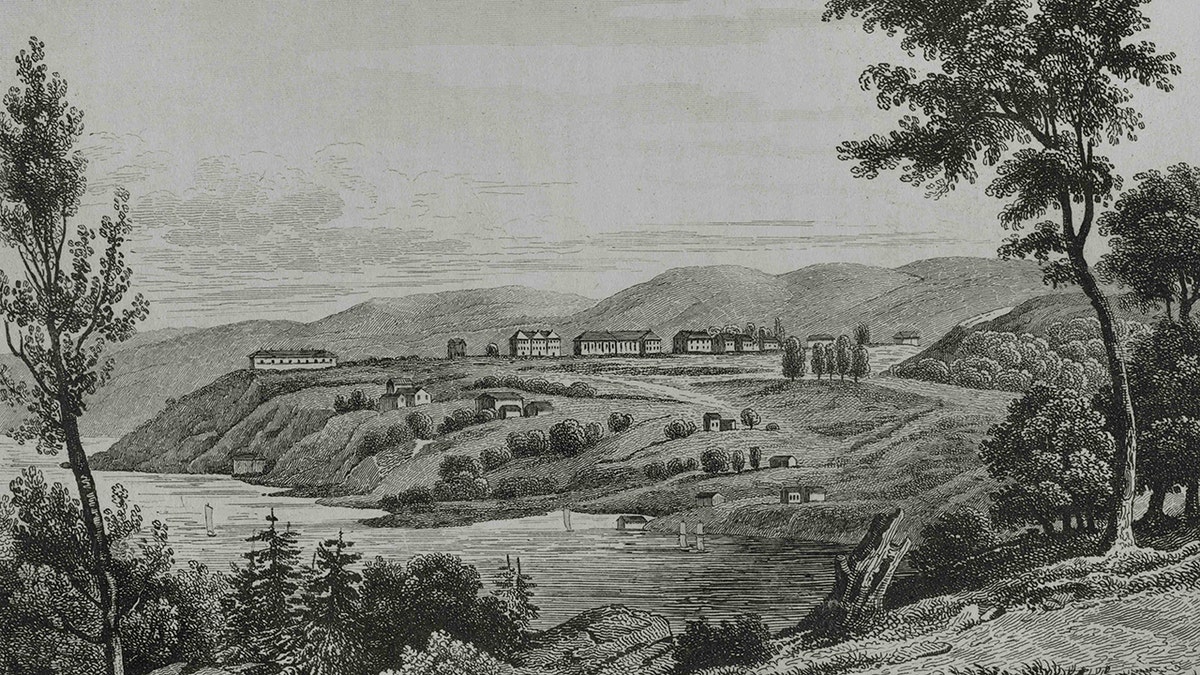
The U.S. Military Academy at West Point opened on July 4, 1802, in the Hudson Valley of New York. (Prisma/Universal Images Group via Getty Images)
The Revolutionary War brought attention to the ongoing need for American youth to be developed and trained to be military leaders.
At the time, however, Secretary of State Thomas Jefferson did not see eye to eye with Washington and Hamilton in regard to having an institution of higher education dedicated to the training of officers for the Army, according to West Point.
It wasn’t until Jefferson became president of the United States that he recognized that defending the republic against potential invasion was of prime importance.
ON THIS DAY IN HISTORY, SEPT. 21, 1780, BENEDICT ARNOLD BETRAYS CAUSE OF AMERICAN INDEPENDENCE
He signed legislation to establish the U.S. Military Academy on March 16, 1802, according to Britannica.
The first class of five officers and 10 cadets would enroll in the school for the U.S. Corps of Engineers.
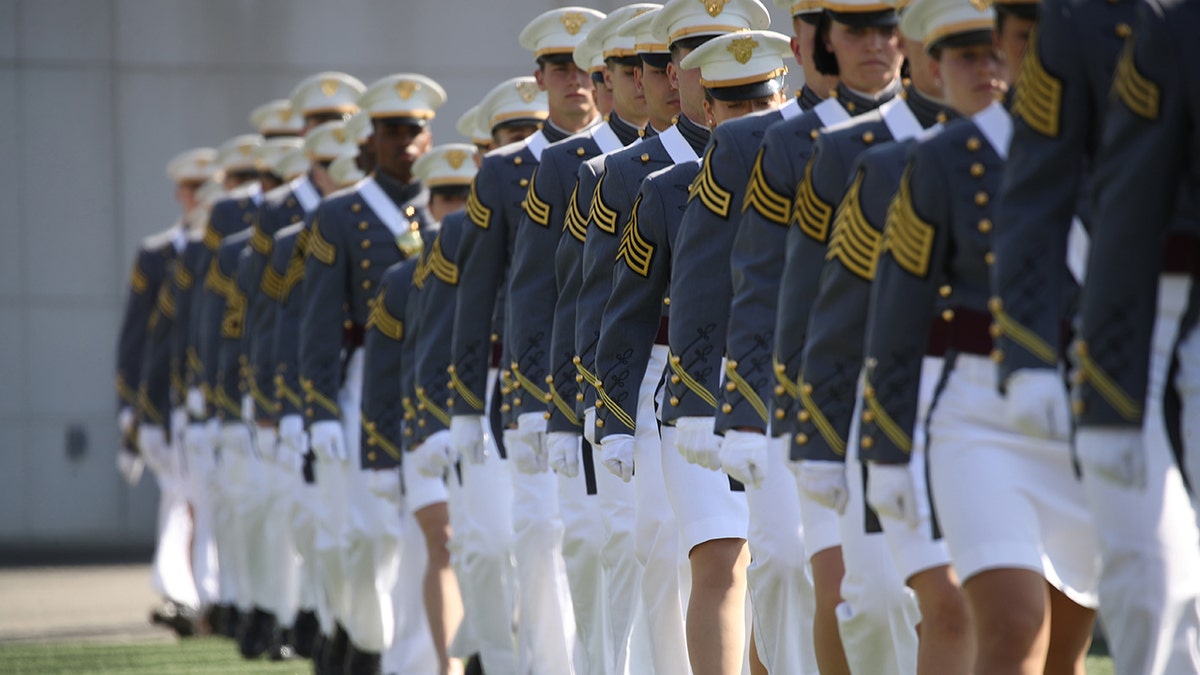
Cadets at West Point are trained to be military leaders while also attaining a college education. (Spencer Platt/Getty Images)
The U.S. Military Academy at West Point officially opened as an apprentice school for military engineers, according to Britannica.
Students would engage not only in physical training but also study to become engineer officers.
The location of West Point has been occupied by troops since 1778 — considered the most strategic location in America during the American Revolution by Washington himself, according to West Point.
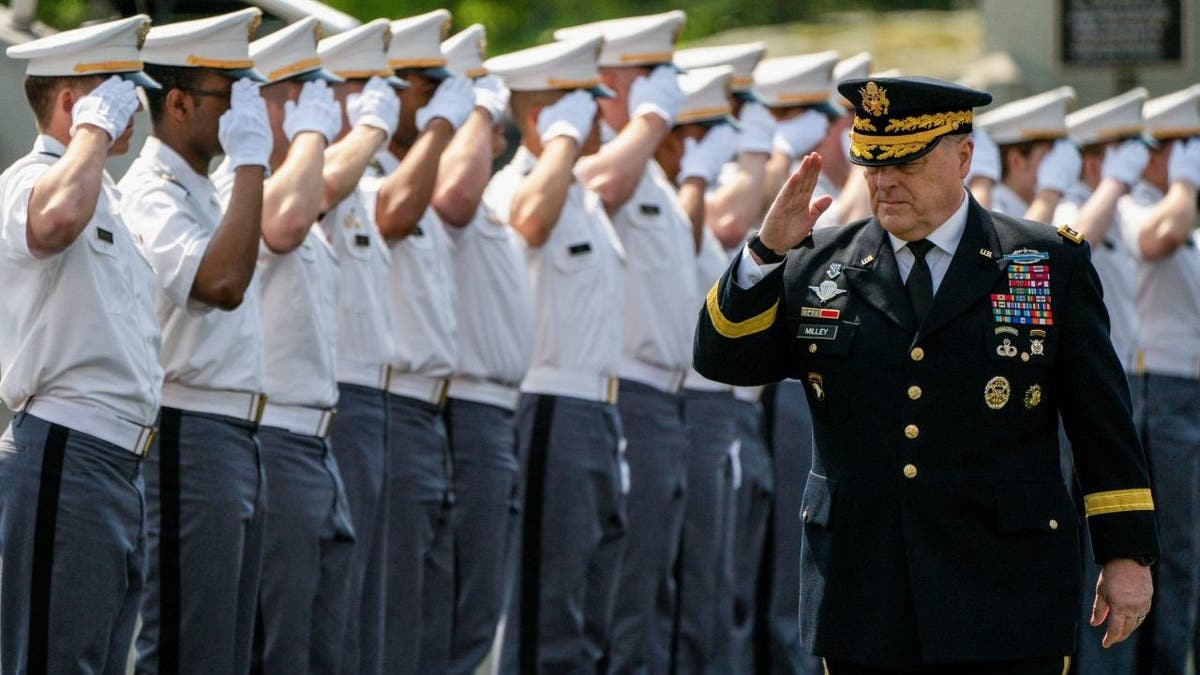
U.S. Army Gen. Mark Milley, chairman of the Joint Chiefs of Staff, salutes during the graduation ceremony at West Point, New York, on May 21, 2022. (Reuters/David Dee Delgado)
The location of the academy held great significance, as the Hudson River Valley was key territory to possess during the Revolutionary War.
Washington established his headquarters on the land in 1779, shortly before Maj. Gen. Benedict Arnold attempted to hand it to the British, according to Britannica.
After the failed attempt, Washington made sure that West Point was never seized.
Today, fewer than 10% of applicants are typically accepted to the academy with a total enrollment of roughly 4,400, according to Britannica.
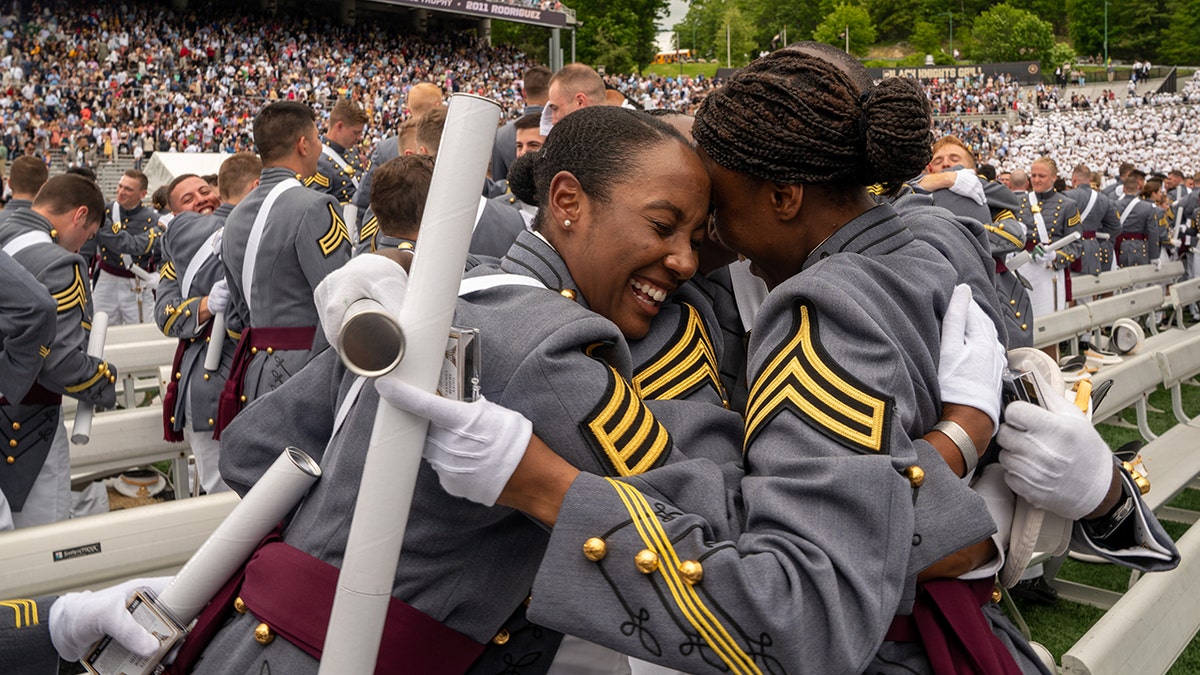
Roughly 1,200 young people are accepted each year into U.S. Military Academy at West Point. (David Dee Delgado/Getty Images)
Those eligible for academy acceptance must be at least 17 years old, but no older than 23.
They must also be U.S. citizens, not married, not pregnant and not legally responsible for child support, according to West Point.
CLICK HERE TO GET THE FOX NEWS APP
"Since its founding over two centuries ago, the military academy has accomplished its mission by developing cadets in four critical areas: intellectual, physical, military and moral-ethical — a four-year process called the ‘West Point Experience,’" according to the academy's website.
"Specific developmental goals are addressed through several fully coordinated and integrated programs."
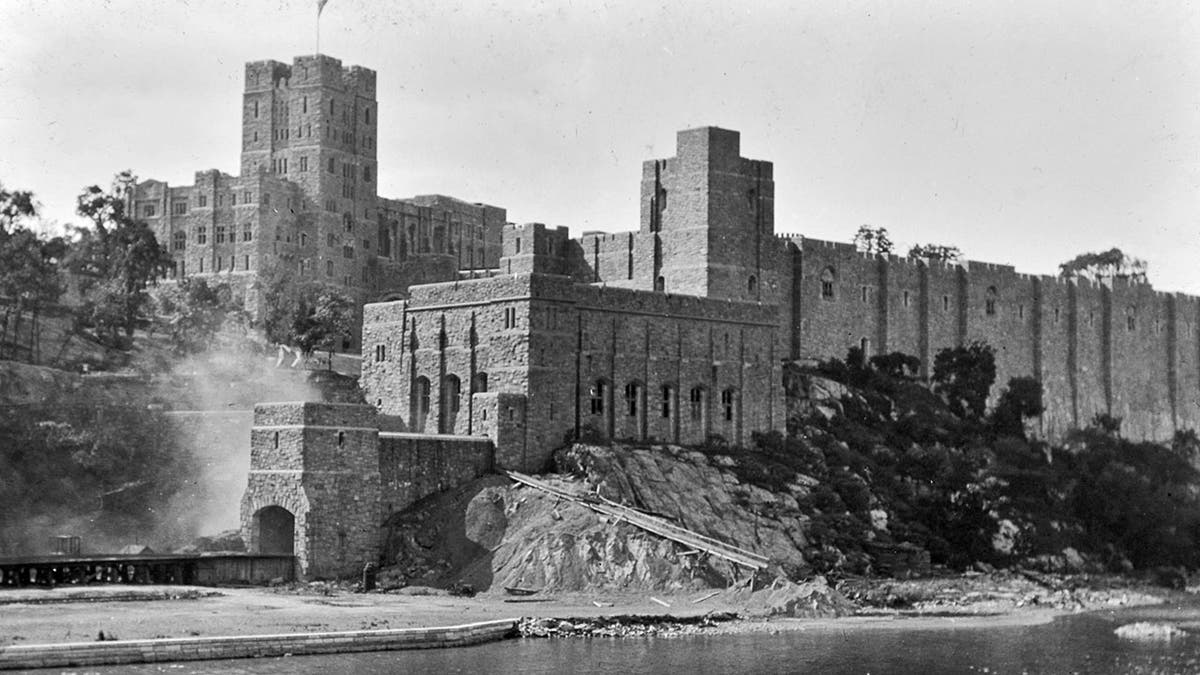
The U.S. Military Academy at West Point, New York, circa 1915. (Education Images/Universal Images Group via Getty Images)
The site also explains, "A challenging academic program that offers 37 majors provides a balanced education in the arts and sciences. All cadets receive a Bachelor of Science degree, which is designed specifically to meet the intellectual requirements of a commissioned officer in today's Army."
For more Lifestyle articles, visit www.foxnews.com/lifestyle
The motto of the U.S. Military Academy is "Duty, Honor, Country" — "a striking expression of West Point's time-honored ideals," according to West Point itself.
That motto is embedded in the academy's coat of arms.
CLICK HERE TO SIGN UP FOR OUR LIFESTYLE NEWSLETTER
Notes the academy, "A favorite expression at West Point is that ‘much of the history we teach was made by people we taught.’"
It continues, "Great leaders such as Grant and Lee, Pershing and MacArthur, Eisenhower and Patton, Westmoreland and Schwarzkopf are among the more than 60,000 graduates of the military academy. Countless others have served society in the fields of medicine, law, business, politics, and science following their careers in uniform."










































